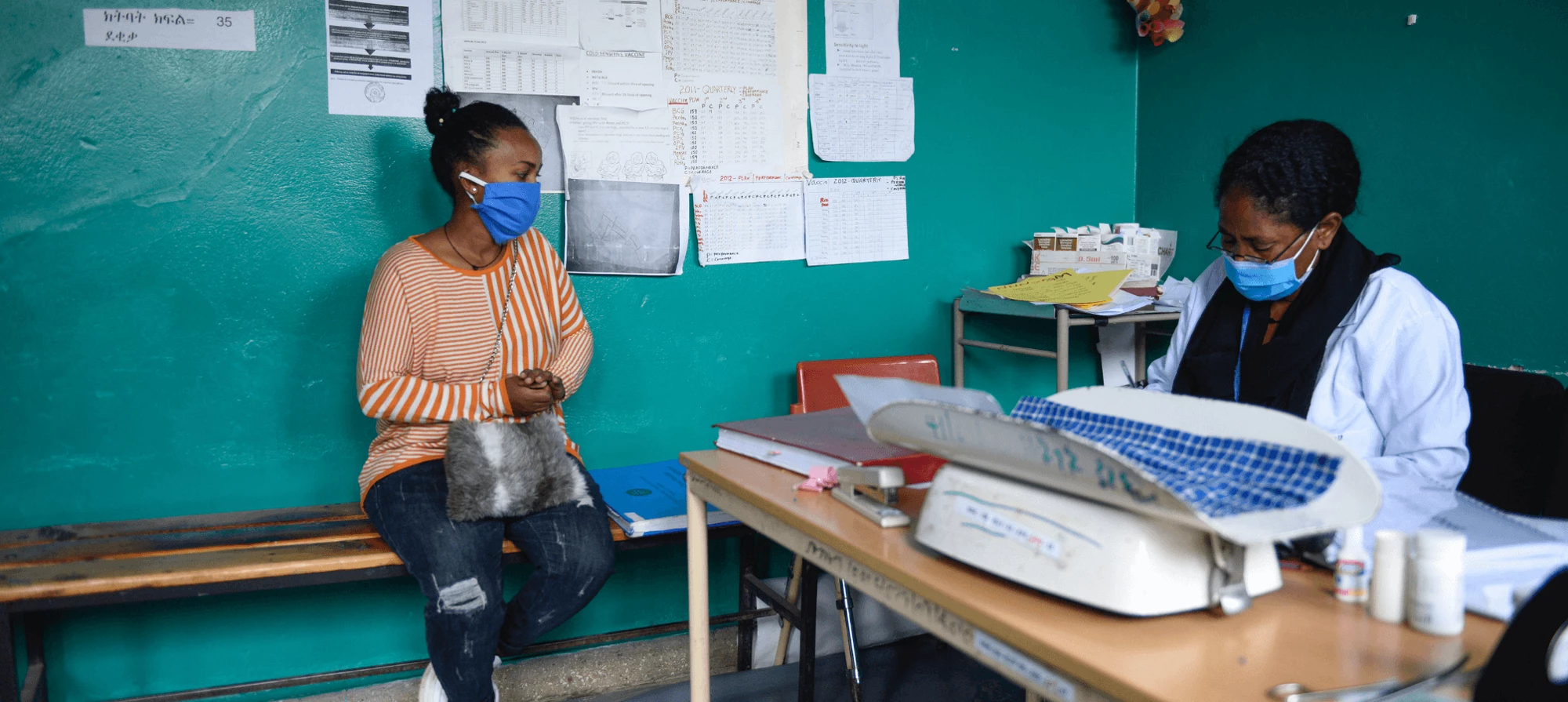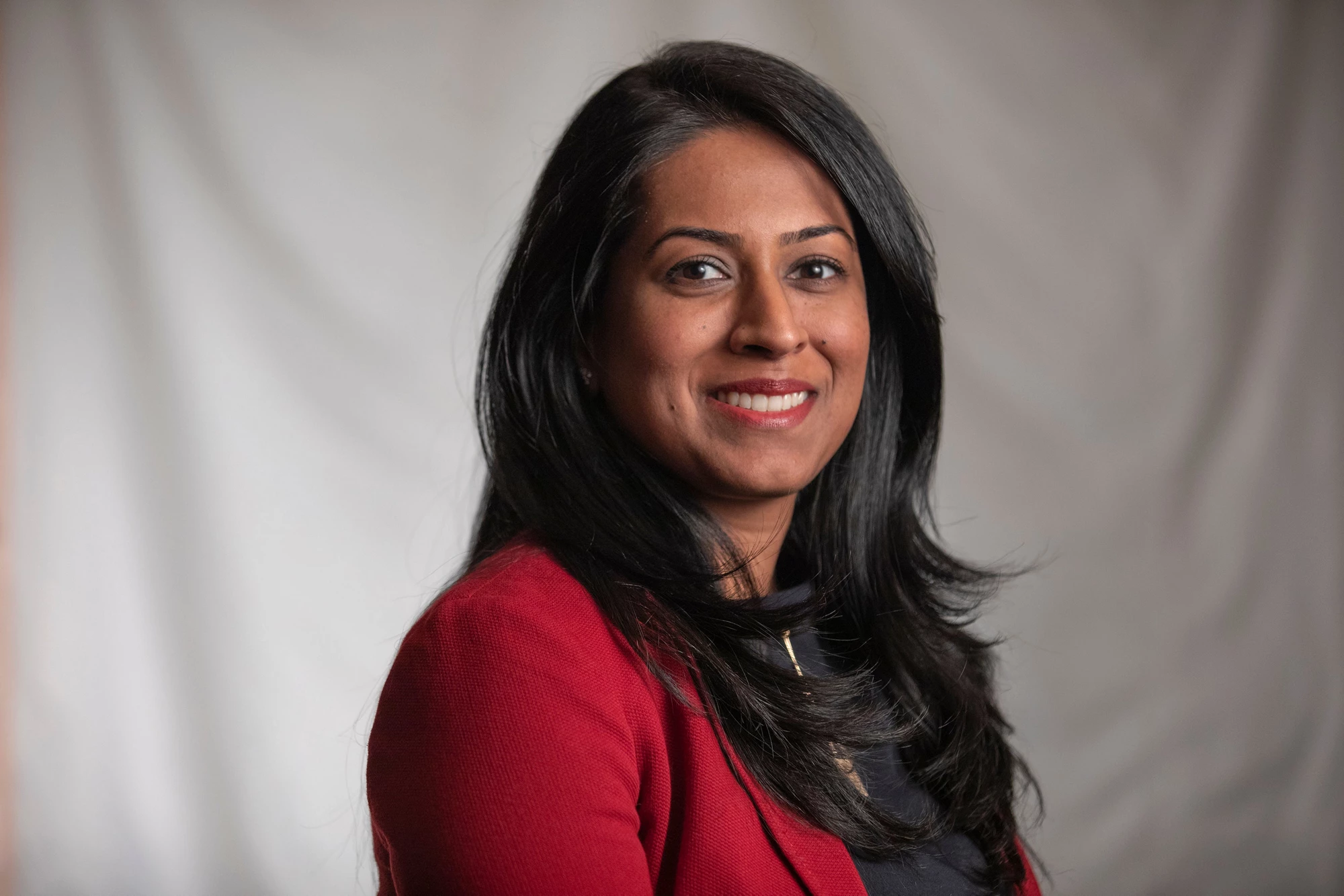 Une infirmière préparant une injection de vaccin au centre de santé de Meshwalekiya à Kirkos, en Éthiopie. (Photo : Michael Tsegaye/Banque mondiale)
Une infirmière préparant une injection de vaccin au centre de santé de Meshwalekiya à Kirkos, en Éthiopie. (Photo : Michael Tsegaye/Banque mondiale)
COVID-19 has exposed existing health system vulnerabilities and equity disparities. By disrupting access to basic health services, the pandemic has undermined the prospects of millions and jeopardized years of progress for women, children and adolescents. Across the Global Financing Facility’s (GFF) 36 partner countries, there has been up to a 25 percent drop in coverage of essential health interventions, hitting women, children and adolescents the hardest. Global supply chains have also been disrupted, affecting the provision of medicines, contraceptives, and crucial protective equipment for frontline health workers.
Governments responded swiftly to mitigate the impacts of the pandemic, but health systems are still under strain. While strengthening the public health sector delivery capabilities and domestic resource mobilization remains a priority, private providers also play a key role in serving a sizable proportion of the population in many low- and middle-income countries.
But what will it take to successfully engage the private sector to respond to the pandemic and build a more resilient recovery? Four key takeaways are emerging:
- For transformative impact, the private sector must be integrated across the health system – health financing, service delivery, policy and regulations, and health information systems, among others. The GFF supports countries to engage the private sector through a country-led stakeholder platform to develop priorities for the health system as part of the investment case for women, children and adolescents. Through financing and technical assistance, the GFF, together with the World Bank, helps to strengthen public-private dialogue and build trust between the two sectors, based on data from comprehensive assessments, leading to a more strategic engagement. For example:
- Recent assessments in countries such as Ethiopia, DRC, and Uganda, helped ministries of health understand the role and scope of the private sector, and assess opportunities and challenges for leveraging private capacity to deliver products and services.
- In countries such as Côte d’Ivoire, the GFF supported private actors to form an umbrella association and become a more effective counterpart for dialogue with the government around mutual priorities in the investment case. This led to a private sector engagement strategy and for the first time, the inclusion of private providers in performance-based financing contracts with the government, supported by a World Bank-GFF project.
- Building government capacity to manage these contracts in countries such as Cameroon, DRC, and Nigeria helped expand access and the range of services available for women, children, and adolescents.
- Leveraging transformative innovations at scale can change the way health care is delivered and accessed. The GFF uses grants linked to larger World Bank financing to enable countries to scale impactful, proven innovative technologies, products and delivery models. For example, Mali, Rwanda, and Tanzania received support through GFF’s Innovation to Scale challenge, part of the GFF’s Innovations Partnership with Laerdal Global Health and Government of Norway. This partnership has recently expanded with support from MSD for Mothers and the Rockefeller Foundation to enable country investment in scalable and sustainable innovations to transform primary healthcare systems.
- Innovative financing can crowd-in new investors and financiers to invest in health systems. The GFF’s flexible grants work to de-risk private capital using mechanisms such as blended financing, impact bonds, and capital market instruments. This enables private investment to be put to work for the countries and areas where it is most needed, with a focus on equity. For example, a GFF-World Bank Treasury collaboration using Sustainable Development Bond issuances has mobilized $2 billion from investors in support of women’s and children’s health. Amid COVID-19, many private providers have needed additional medical equipment but for some smaller facilities, access to finance for purchasing this equipment has been a challenge. A partnership between the GFF and International Finance Corporation (IFC) on blended finance draws on GFF grant funds to provide a de-risking element necessary for providers to access affordable capital for operations and expand services to the poor. The IFC just announced the first partnership investments with the Africa Medical Equipment Facility within IFC’s Global Health Platform designed to establish risk-sharing facilities to help small businesses access up to $300 million in loans and leases. Through this platform, the GFF is helping improve the quality of care for small and medium health care facilities in Kenya that are serving low-income populations, including women and children.
- Bringing global private sector expertise locally enables the co-design of solutions to country health challenges. The private sector is not just a source of financing but has valuable expertise to offer. In partnership with UPS Foundation, MSD for Mothers, and Bill & Melinda Gates Foundation, the GFF is bringing corporate private sector expertise in logistic and supply-chain management to Mozambique to access medicines and health commodities and family planning services.
When done right, strategic public-private collaboration can help countries to protect essential health services as part of their COVID-19 response and recovery efforts , reclaim health gains achieved before the pandemic, and build more resilient and equitable health systems.
WATCH: Countdown to #InvestInHealth with Sneha Kanneganti


Join the Conversation